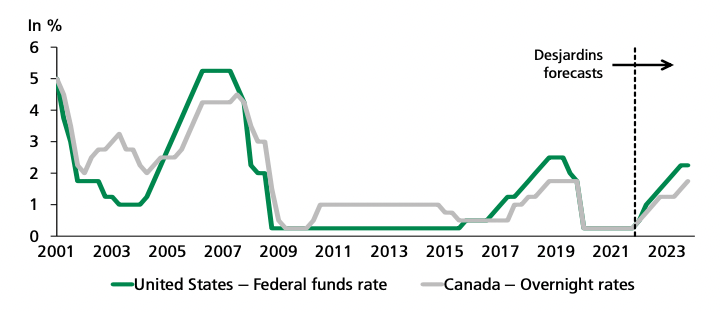ECB's New Task Force: Simplifying Banking Regulation

Table of Contents
Reducing Regulatory Complexity for Banks
The current regulatory environment for banks within the Eurozone is often criticized for its complexity. The ECB's New Task Force directly addresses this issue by focusing on two key areas: streamlining reporting requirements and consolidating regulatory frameworks.
Streamlining Reporting Requirements
Banks currently face a deluge of reporting requirements, consuming significant time and resources. The task force aims to drastically reduce this administrative burden. This will be achieved through several key actions:
- Reducing the number of forms and reports: By identifying and eliminating redundant reporting requests, the task force aims to significantly decrease the administrative workload on banks. This will free up valuable resources for core banking activities.
- Standardizing reporting formats: Inconsistencies in reporting formats across different jurisdictions create inefficiencies. The task force aims to establish standardized formats to improve data consistency and facilitate easier analysis by regulators. This improved data quality will lead to better regulatory oversight.
- Utilizing technology to automate reporting processes: The adoption of new technologies, such as RegTech solutions, will automate many reporting processes, reducing manual effort and the potential for human error. This will lead to increased efficiency and accuracy in regulatory reporting.
Consolidating Regulatory Frameworks
Overlapping or conflicting regulations from various sources – national and EU levels – create confusion and increase compliance costs. The ECB's New Task Force seeks to create a more unified and coherent regulatory environment by:
- Identifying and eliminating redundant regulations: A thorough review of existing regulations will identify and eliminate overlaps and inconsistencies, leading to a leaner and more effective regulatory framework.
- Harmonizing regulatory standards across different member states: The task force will work to harmonize standards across the Eurozone, creating a level playing field for banks and reducing the complexities of operating across multiple jurisdictions.
- Improving the clarity and transparency of existing regulations: Clear and easily understandable regulations are crucial for effective compliance. The task force will strive to improve the clarity and transparency of existing regulations, reducing ambiguity and the potential for misinterpretations.
Improving Efficiency and Competitiveness in the Banking Sector
The simplification of banking regulations, a primary goal of the ECB's New Task Force, is expected to significantly improve the efficiency and competitiveness of the banking sector within the Eurozone.
Reducing Compliance Costs
High compliance costs place a significant burden on banks, hindering their ability to invest in growth and innovation. The task force's initiatives aim to significantly reduce these costs:
- Lower administrative expenses: Streamlined reporting and simplified regulations will directly lower administrative expenses, freeing up resources for other crucial activities.
- Increased profitability for banks: Reduced compliance costs will translate to increased profitability, allowing banks to invest more in their businesses and offer better services to customers.
- Enhanced capacity for investment in new technologies: With reduced costs, banks will have increased capacity to invest in new technologies and innovative financial solutions.
Promoting Financial Innovation
Unnecessary regulatory barriers often stifle financial innovation. The ECB's New Task Force aims to foster a more dynamic and innovative banking sector by:
- Facilitating the development of new fintech solutions: A less complex regulatory environment will encourage the development and adoption of new fintech solutions, driving competition and efficiency within the industry.
- Fostering competition among banks: Reduced regulatory burdens will foster a more competitive banking landscape, ultimately benefiting consumers through better products and services.
- Improving access to financial services for businesses and consumers: Increased competition and efficiency will lead to improved access to financial services for businesses and consumers across the Eurozone.
Strengthening Financial Stability through Clarity and Transparency
While simplifying regulations, the ECB's New Task Force prioritizes maintaining robust oversight to safeguard financial stability.
Enhanced Regulatory Oversight
Even with simplification, the task force will focus on maintaining a strong regulatory framework:
- Improved risk management by banks: Clearer and simpler regulations will allow banks to improve their risk management capabilities.
- Enhanced supervisory capabilities of the ECB: The streamlined regulatory framework will enhance the ECB's ability to effectively supervise the banking sector.
- Increased transparency in the regulatory process: Increased transparency will build trust and confidence in the regulatory framework.
Improving Communication and Engagement
Effective communication and engagement are crucial for the success of the task force's initiatives:
- Regular consultations with industry representatives: The task force will actively consult with banks and other stakeholders to ensure that the simplification process is effective and addresses their concerns.
- Providing clear and accessible information about new regulations: Clear and easily understandable information will ensure smooth implementation of the new regulations.
- Implementing feedback mechanisms to improve the regulatory framework: The task force will incorporate feedback to continuously improve the regulatory framework.
Conclusion
The ECB's New Task Force represents a significant step toward creating a more efficient and competitive banking sector within the Eurozone. By reducing regulatory complexity, lowering compliance costs, and fostering innovation, the initiative aims to strengthen financial stability and benefit both banks and consumers. To stay informed about the progress of this important initiative, follow updates and announcements regarding the ECB's New Task Force and its ongoing efforts to streamline banking regulation. The simplified regulatory landscape promised by this task force will undoubtedly reshape the future of banking in the Eurozone, leading to a more robust and dynamic financial ecosystem.

Featured Posts
-
 Dow Delays Major Canadian Project Amid Market Volatility
Apr 27, 2025
Dow Delays Major Canadian Project Amid Market Volatility
Apr 27, 2025 -
 Nosferatu The Vampyre A Now Toronto Detour Worth Taking
Apr 27, 2025
Nosferatu The Vampyre A Now Toronto Detour Worth Taking
Apr 27, 2025 -
 Offenlegung Gemaess Artikel 40 Absatz 1 Wp Hg Pne Ag
Apr 27, 2025
Offenlegung Gemaess Artikel 40 Absatz 1 Wp Hg Pne Ag
Apr 27, 2025 -
 Posthaste How A Canadian Travel Boycott Affects The American Economy
Apr 27, 2025
Posthaste How A Canadian Travel Boycott Affects The American Economy
Apr 27, 2025 -
 Ariana Grandes Dramatic Hair And Tattoo Transformation
Apr 27, 2025
Ariana Grandes Dramatic Hair And Tattoo Transformation
Apr 27, 2025
